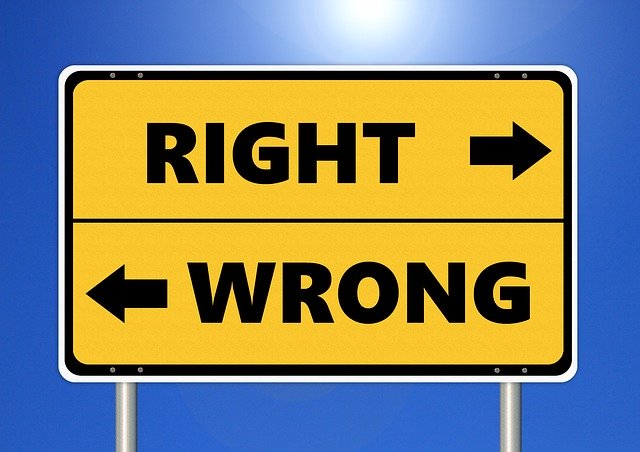Business leaders today are not exempt from being wrong. While we like to believe their judgment is getting better, certain behaviors make them vulnerable to err, such as mindset failures, delusions, mismanagement, and patterns of unsuccessful (or poor) behavior. Our wishful thinking, denial, and other forms of avoidance often prevent us from seeing their errors—or the mistakes we make.
I’ve been thinking about this recently: we live in a celebrity culture where leaders, and especially CEOs, are expected to be perfect examples. They are held up as icons. We don’t like to admit they have flaws, or that the traits that make them special can also lead to failure.
You see, we crave heroic leaders who we can look up to and derive a sense of safety and security. We can’t do this when we see their flaws, so we contribute to the heroic myth and enable the leader to plunge full steam ahead, right or wrong. We must abandon this hero-worship.
There is a fine line between right and wrong, and like all humans, leaders are capable of swinging back and forth. They can be great leaders and fallible human beings. But when great leaders make a mistake, when they realize they were wrong, they take appropriate action.
So why don’t some leaders admit when they are wrong?
The Science of Being Wrong
Fear of failure remains a common challenge for leaders today. I have written about this in the past, here. This fear fuels our drive to avoid losing face, at all costs. But the truth is, admission of error does less to harm our credibility than ongoing denial.
According to social psychologist Adam Fetterman, a researcher at the University of Texas El Paso, “When we do see someone admit that they are wrong, the wrongness admitter is seen as more communal, more friendly.” When someone promptly admits to being wrong, people do not think they are less competent.
Studies also revealed that some people are more willing to admit when they are wrong: they publicly acknowledge that their prior belief or attitude was inaccurate. The researchers called this a willingness to admit wrongness, or WAW. In three studies, they created scenarios to measure WAW, and found a correlation with agreeableness, honesty/humility, and openness to experience.
I find these to be admirable qualities in leaders today. And I think it’s time to restore the art of being wrong. What about you?
I’d love to hear from you. You can reach me here, on LinkedIn, or give me a call: 561-582-6060.

Did You Enjoy This Article?
Join thousands of other smart business owners like yourself & get our Proffittable Times newsletter.
It's filled with actionable content you can apply immediately.
Sign up now to get started!
– Coach Nancy










